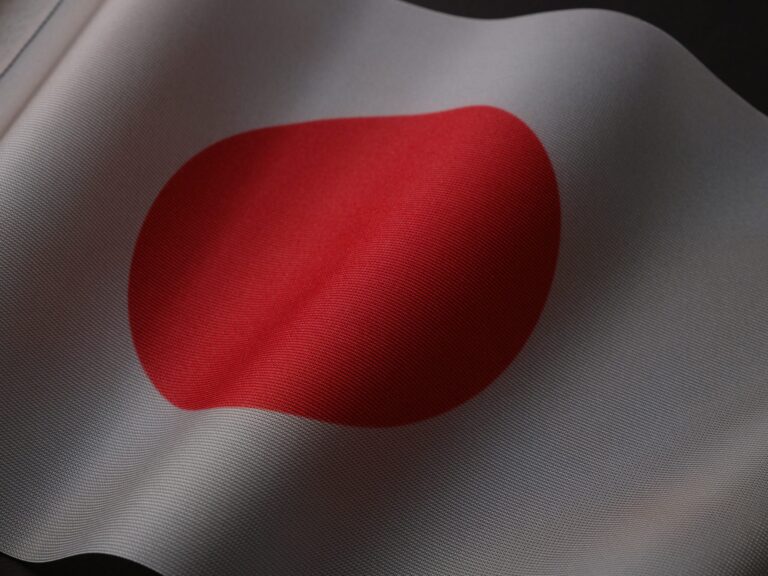The Japanese government has released long-awaited guidance on THC limits for CBD products, allowing brands wanting to enter the market to start planning their strategies.
In May 2024, Japan officially opened a public comment period on a bill aimed at regulating the country's emerging cannabis and CBD industry.
The Ministry of Health, Labor and Welfare (MHLW) has made some changes to the restrictions it initially opposed, but they remain the strictest in the world.
Dr. Yuji Masataka, Japan's first medical cannabis expert, told Business of Cannabis that these strict restrictions could have a major impact on the industry as medical cannabis continues to be rolled out.
what happened?
Late last year, Japan took a major step toward cannabis reform by approving a bill to revise its 75-year-old cannabis regulation law.
After passing the bill in November 2023, Japanese authorities began a public comment period to work out the details of these reforms.
The original proposal for THC limits in CBD products suggested strict limits, rather than the industry being dominated by isolate-based products, eliminating the entourage effect and causing CBD prices to remain high. Many concerns arose.
At the time, Dr. Masataka suggested that this “could make parallel imports of products difficult and keep the price of CBD products high.”
He added: “Cannabis products are characterized by their diversity. Tightening THC standards will homogenize products and lead to a loss of entourage effects.”
The proposed limits are:
Oil (10mg/kg = 0.001% = 10ppm) Beverages (0.10mg/kg = 0.00001% = 0.1ppm) Others (food, etc.) (1mg/kg = 0.0001% = 1ppm)
Now, after receiving a large number of public comments, many of which warned of these draconian restrictions and the impact they could have on the industry, the government has published new guidance on the proposed thresholds.
In response to these concerns, several adjustments were made to the draft.
Oil/Powder (10mg/kg = 0.001% = 10ppm) Aqueous solution (0.10mg/kg = 0.00001% = 0.1ppm) Others (food, etc.) (1mg/kg = 0.0001% = 1ppm)
Dr. Masataka explained that the threshold for raw materials containing separated powders has been raised from the originally proposed 1 ppm to 10 ppm.
This represents a 10-fold increase and is “an important step in the right direction”, but it remains the toughest restriction in the world and will do little to quell industry concerns.
Notably, the Ministry of Health, Labor and Welfare has stated that it plans to begin clinical studies “to ensure that patients with refractory epilepsy can continue to use products containing cannabis-derived ingredients.”
Challenges remain
With such small amounts of THC allowed, there are concerns about whether current laboratories will be able to detect THC without investing in high performance liquid chromatography (HPLC) as well as mass spectrometer (MS) equipment. there is.
Dr. Masataka said that given that trace amounts of THC do not pose a health risk, this would “complicate the process and lead to increased costs” of testing and unnecessarily “increase product prices.” Explained.
Additionally, products such as broad-spectrum and vaping products will have difficulty complying with the new regulations, forcing a shift to isolated products and synthetic CBD.
This in turn will lead to a decrease in the effectiveness of CBD products, impacting potential market growth.
This could facilitate the proliferation of synthetic cannabinoid products, which technically do not contain THC but still have intoxicating effects, as seen in markets around the world. This could be said to be a problem of the Ministry of Health, Labor and Welfare's own making.
Given concerns over testing capacity, which could lead to the issuance of fraudulent ingredient analysis certificates, it would be “virtually impossible” for governments to carry out spot checks on all products on the market, making regulations becomes invalid.
Patients using CBD products are also concerned about these new proposals and have launched a petition calling for a review, which currently has more than 35,000 signatures.
Dr. Yuji Masataka is a graduate of Kumamoto University School of Medicine. In 2016, he met Dr. Jeffrey Hagenrather, a medical cannabis expert, in California and decided to become Japan's first medical cannabis specialist. While working at the Department of Neurology at Kumamoto University, in 2017 he established Green Zone Japan, a specified non-profit organization with the aim of raising awareness about medical cannabis, as its representative director. Currently, he also serves as vice president of the Japanese Society for Clinical Cannabinoid Research.
Dr. Masataka also serves as a key opinion leader for Astrasana Japan Co., Ltd., and is a key opinion leader for Astrasana Japan Co., Ltd., where CBD products are not only widely accepted, but also highly valued and recognized for their potential health benefits. We provide support to create a progressive and inclusive environment in Japan. market opportunity.

